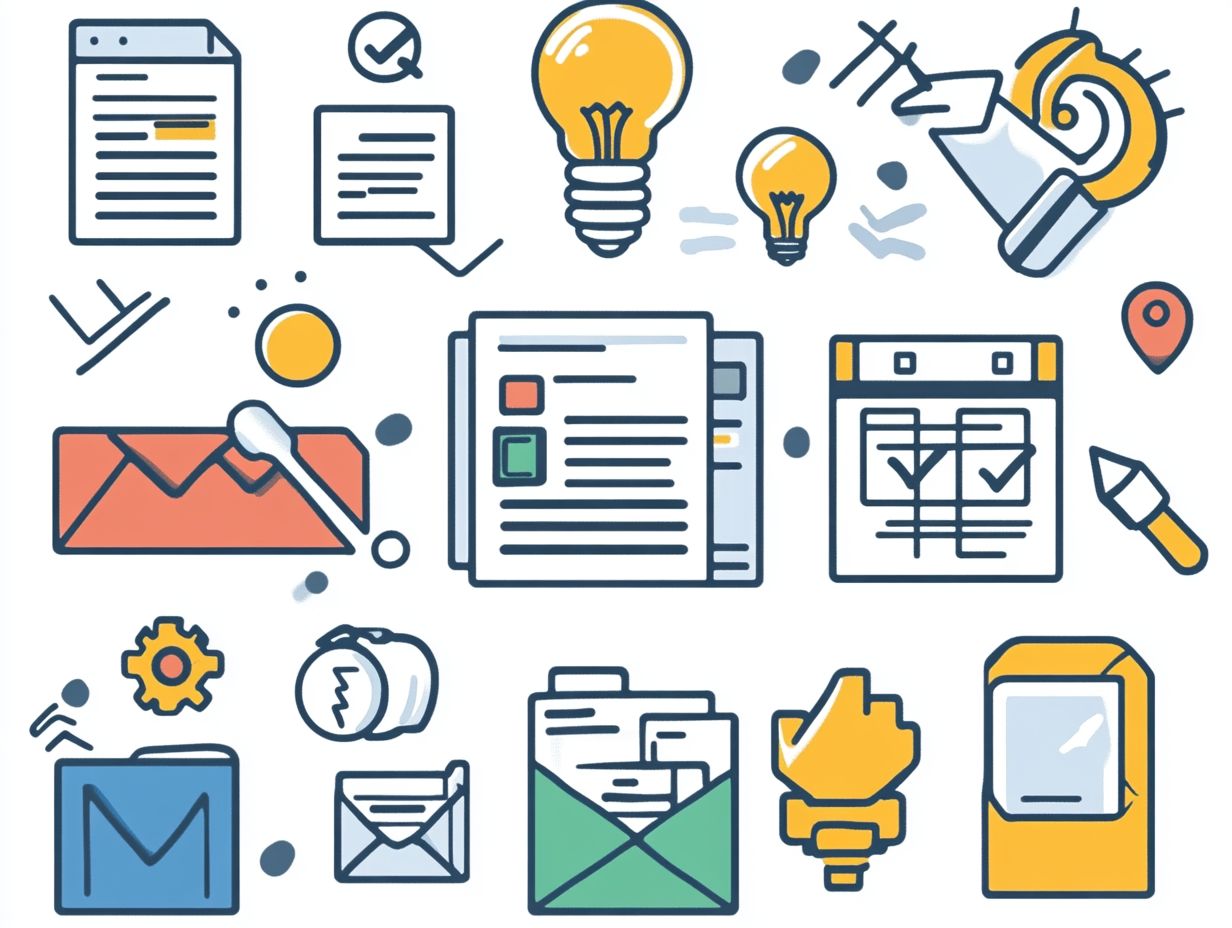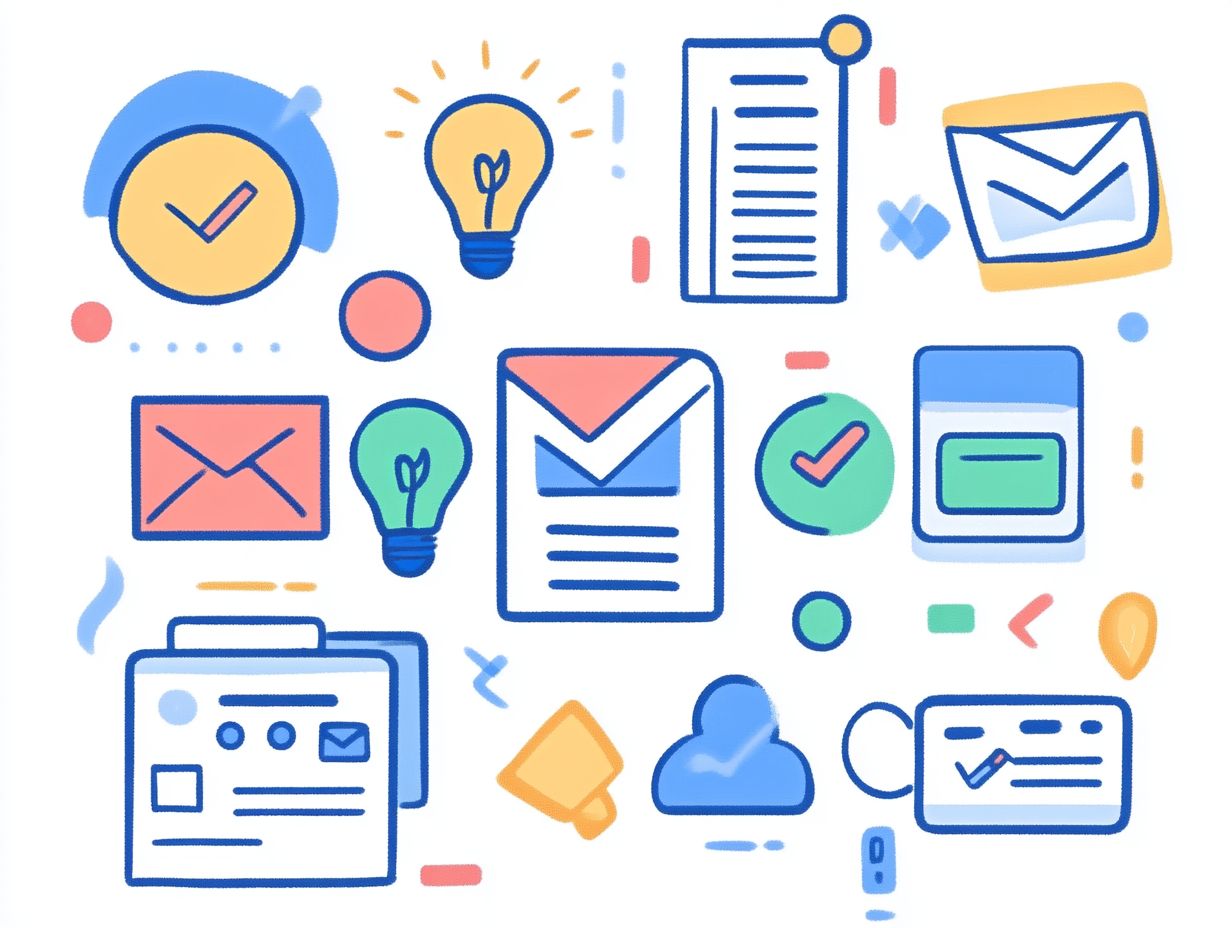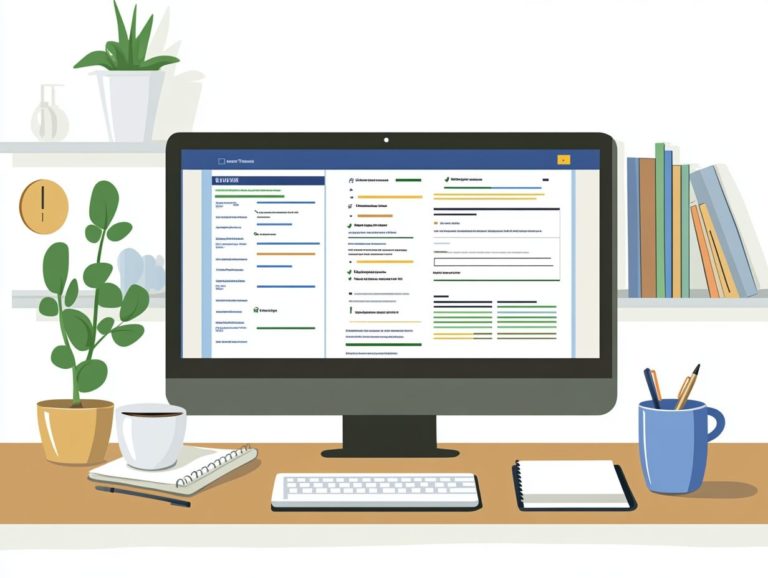“7 Common CRM User Mistakes and Solutions”
In the fast-paced realm of business, Customer Relationship Management (CRM) systems help businesses manage interactions with customers and serve as invaluable assets for building relationships and driving growth.
However, many organizations miss the mark by not harnessing the full potential of their CRM. This article lists seven common mistakes users make, ranging from poor data management to insufficient training, and examines the serious consequences these errors can have on business performance.
You ll also find practical solutions to sidestep these pitfalls and maximize your CRM investment for enduring success. Dive in to discover how to enhance your CRM experience and elevate your business operations.
Contents
- Key Takeaways:
- 1. Not Utilizing All Features of the CRM
- 2. Poor Data Management and Organization
- 3. Lack of Proper Training for Users
- 4. Not Customizing the CRM to Fit Business Needs
- 5. Inadequate Integration with Other Systems
- 6. Neglecting to Update and Maintain the CRM
- 7. Not Utilizing CRM Analytics and Reporting
- How Can These Mistakes Impact a Business?
- Frequently Asked Questions
- 1. What are the most common mistakes made by CRM users?
- 2. How can not updating data regularly affect a CRM?
- 3. What is one solution to avoid data duplication in a CRM?
- 4. How can CRM user errors be reduced?
- 5. What is one common mistake when managing CRM access and permissions?
- 6. How can CRM user collaboration be improved?
Key Takeaways:
Here are some key points to remember:
- Not using all features of CRM can lead to missed opportunities for growth and efficiency.
- Poor data management and organization can result in inaccurate insights and decision-making.
- Proper training is key for users to fully utilize CRM and maximize its potential.

1. Not Utilizing All Features of the CRM
Many organizations miss out on the full potential of their CRM systems, leading to lost opportunities for boosting sales productivity and enhancing customer relationships. This often arises from ineffective user adoption, which hampers teams from fully taking advantage of automation tools and third-party integrations that could streamline business processes and drive growth.
The data analysis capabilities within these systems are often overlooked. By harnessing insights into customer behavior and trends, you position yourself to make more informed decisions.
Integration with marketing initiatives is another critical area for improvement. Aligning your CRM activities with marketing strategies can create cohesive campaigns that significantly boost engagement.
Without proper employee training and a focus on user engagement, organizations may find it challenging to overcome these obstacles, ultimately limiting their ability to maximize the benefits of their CRM investment. By implementing customized training programs, you can enable your employees, ensuring they feel confident in utilizing every available feature.
2. Poor Data Management and Organization
Effective data management and organization are essential for maintaining the integrity of customer data within CRM systems. Poor practices can lead to outdated information and duplicate records that undermine data quality and operational efficiency.
When your sales strategies hinge on inaccurate customer information, you inadvertently create barriers that hinder meaningful relationship-building and can ultimately impact your revenue. Many organizations grapple with segmentation and targeting, resulting in misguided marketing efforts that fail to resonate with their audience.
To counteract these challenges, it’s crucial to implement regular audits to assess data quality. By employing data validation procedures, you can ensure that any information entered into the system meets established standards, significantly reducing errors from the beginning.
Incorporating advanced reporting tools can also enable you to swiftly identify anomalies, allowing for timely corrective measures that enhance data reliability and strengthen your customer connections.
3. Lack of Proper Training for Users
A lack of proper training for users can significantly hinder your user adoption rates and overall experience, leading to underutilization of CRM systems that stifles your business growth and sales productivity.
Implementing comprehensive training programs is essential to ensure that users feel confident navigating the various features of the CRM. By integrating a mix of training methods such as hands-on sessions for real-time practice paired with digital resources for flexible learning you can cater to different learning preferences.
Establishing effective feedback mechanisms will provide valuable insights into user challenges, allowing for continuous improvements in your training approaches. This multifaceted strategy not only fosters user engagement but also drives better utilization of CRM systems, enhancing overall productivity and satisfaction.
4. Not Customizing the CRM to Fit Business Needs
Failing to customize your CRM can create inefficiencies in your processes and hinder your growth plans. Generic solutions simply won t cut it when addressing your unique operational requirements.
By tailoring your CRM to fit your workflows and customer preferences, you can significantly enhance user experience and streamline operations. For instance, a small e-commerce company integrated customer feedback into its CRM and discovered that personalized marketing messages resulted in a 30% increase in engagement and conversion rates.
Services like Salesforce provide customizable features that enable you to automate processes and manage relationships more effectively. Such tailored solutions elevate customer satisfaction and allow your sales team to develop more effective strategies based on actionable insights.
This holistic approach strengthens long-term customer relationships and drives sustainable growth.
5. Inadequate Integration with Other Systems

Inadequate integration of CRM systems with other software leads to significant challenges, resulting in inefficient processes and silos that hinder effective collaboration across departments.
To harness the power of customer relationship management, you need to connect your CRM with various systems seamlessly.
This includes integrating it with marketing platforms to synchronize campaigns and customer engagement efforts, as well as customer support tools that streamline communication and resolve issues efficiently.
These integrations facilitate data sharing and enhance your analytics capabilities, providing deeper insights into customer behavior and needs.
Ultimately, this cohesive strategy elevates the customer experience and drives growth. Don’t miss out on the chance to enhance your strategies!
6. Neglecting to Update and Maintain the CRM
Neglecting regular updates and maintenance of your CRM leads to diminished performance and compromised data quality, stifling user engagement and affecting both sales productivity and customer relationships.
Keeping your information accurate and current is crucial as it streamlines workflows and enriches user experience. When your CRM is up-to-date, you gain access to timely insights, allowing you to build stronger relationships with clients and enable your sales teams to close deals more effectively.
Regular software updates introduce new functionalities and security enhancements, significantly influencing how efficiently you navigate the platform. To ensure operational efficiency, prioritize regular audits, establish a schedule for updates, and actively solicit team feedback to pinpoint areas needing attention.
7. Not Utilizing CRM Analytics and Reporting
Neglecting CRM analytics and reporting tools hinders your ability to make data-driven decisions that enhance sales strategies and optimize marketing campaigns, ultimately stunting business growth.
In today s landscape, personalization and customer engagement are crucial. Lacking insightful data can leave your brand struggling to connect meaningfully with your audience.
By leveraging CRM analytics, you can sift through the wealth of customer information to identify patterns and preferences that refine your marketing strategies.
This analytical approach helps you spot emerging trends and measures the effectiveness of your communication methods throughout the sales process.
Implementing these analytics deepens your understanding of customer behavior, enabling you to tailor outreach efforts for better results and sustained growth. Start harnessing your CRM data today!
How Can These Mistakes Impact a Business?
The mistakes you make in CRM utilization can significantly affect your business growth. They have direct repercussions on sales productivity, customer relationships, and overall operational efficiency. This often results in reduced user adoption and engagement.
When you fail to leverage your CRM effectively, a series of problems begins to unfold throughout your organization. Customer satisfaction takes a noticeable dive, with clients growing frustrated over inconsistent service and unresponsive communication. Such dissatisfaction can lead to negative reviews, damaging your brand’s reputation and pushing potential customers away.
For instance, businesses like Blockbuster struggled due to poor customer relationship management, ultimately losing market share to competitors who embraced superior CRM techniques.
Team morale can suffer as employees feel frustrated by inefficiencies. This can lead to disengagement and high turnover rates. In the end, these issues can severely limit revenue generation, as clients leave and potential leads slip through the cracks.
In today s competitive marketplace, recognizing and rectifying these CRM missteps is essential for sustainable growth.
What Steps Can Be Taken to Avoid These Mistakes?
To reduce common pitfalls associated with CRM usage, implement robust employee training programs, prioritize software customization, and establish data quality standards that foster user engagement and effective collaboration.
Along with these foundational steps, integrating a culture of continuous improvement is crucial. Encouraging regular feedback from users allows you to identify pain points in real-time, enabling swift adjustments.
For example, holding bi-weekly check-ins facilitates discussions about challenges and best practices. This promotes a shared understanding across your team. Leveraging analytics provides valuable insights into user behavior, ensuring that your CRM system evolves to meet the ever-changing needs of your organization.
You should definitely create tailored dashboards for different departments to streamline operations and enhance user satisfaction. This ultimately leads to a more effective CRM experience that works for you.
What Are the Benefits of Proper CRM Usage?

When you leverage CRM systems effectively, you unlock a treasure trove of benefits that can significantly accelerate your business growth. Enhanced sales productivity, improved customer relationships, and increased operational efficiency across all departments become your new reality.
By automating lead tracking and nurturing, your sales teams can close deals at lightning speed. This allows them to focus their energies on high-quality leads instead of getting caught up in administrative tasks.
In marketing, CRM tools enable you to design targeted campaigns that align with customer behavior and preferences. This ensures your messages resonate deeply and achieve higher engagement rates.
Moreover, effective customer support is a breeze with organized databases that give your agents instant access to customer histories. This means they can resolve issues quickly and personalize their interactions, elevating the customer experience.
Ultimately, this seamless synergy across sales, marketing, and support functions cultivates a cohesive customer journey and drives long-term loyalty.
How Can a Business Maximize Their CRM Investment?
To truly maximize your CRM investment, focus on effective implementation, encourage user adoption through comprehensive training, and leverage data analysis to refine your sales strategies and enhance customer communication.
Start by creating a structured rollout plan that incorporates insights from various stakeholders. This ensures that the system seamlessly aligns with your business processes.
Ongoing training sessions will enable your users, making them proficient in navigating the CRM and instilling the confidence to explore its full potential.
By harnessing data analysis, you can track key performance indicators, identify emerging trends, and gather valuable feedback. This approach will enable you to continuously improve both sales tactics and customer relationship management.
By integrating these strategies into your operational framework, you can cultivate an environment that thrives on collaboration and sustained success. Start leveraging your CRM effectively today to unlock these incredible benefits!
What Are the Latest Trends in CRM Usage?
The latest trends in CRM usage reveal an exciting landscape shaped by AI-powered analytics and cloud-based storage solutions.
There is a keen emphasis on user experience that is transforming how you connect with customers. This exciting change simplifies your data collection and analysis, enabling you to leverage customer insights more effectively.
Using AI technology, you can predict customer behaviors and personalize interactions, elevating your sales strategies to new heights.
Embracing cloud solutions allows your teams to collaborate seamlessly, granting real-time access to customer information from virtually anywhere.
The focus on user experience ensures that employees can navigate these systems with ease, resulting in heightened productivity and improved service delivery.
By adapting to these advancements, you position your organization to forge deeper customer connections while remaining agile in an ever-evolving market landscape.
How Can a Business Choose the Right CRM for Their Needs?
Selecting the right CRM system involves a meticulous evaluation of your specific business needs and an openness to customizing software solutions.
It s essential to carefully consider how well the CRM will work with your existing systems. Start this process by conducting a thorough analysis of your current operations, pinpointing pain points and areas ripe for improvement.
Engaging team members across various departments provides invaluable insights into the tools they rely on daily and their expectations for a new CRM.
Next, compile a list of essential features and functionalities to help streamline your options.
Evaluating multiple CRM providers through demos and trial periods allows you to experience the software firsthand. This makes it easier to identify the solution that enhances customer interactions and supports your broader growth strategies.
Finally, assess the scalability and support services offered by vendors. This will be crucial in selecting a system that meets your current demands and adapts seamlessly to future changes.
Frequently Asked Questions
1. What are the most common mistakes made by CRM users?

Some of the most common mistakes made by CRM users include not properly training employees on how to use the system, not regularly updating data, and not utilizing all features and capabilities of the CRM.
2. How can not updating data regularly affect a CRM?
Not updating data regularly can lead to inaccurate information, duplicate entries, and outdated reports. This greatly affects the effectiveness of the CRM and hinders decision making.
3. What is one solution to avoid data duplication in a CRM?
To avoid data duplication, establish a system for data entry and ensure all users follow it consistently. This includes using standardized naming conventions and regularly merging duplicate entries.
4. How can CRM user errors be reduced?
Reduce CRM user errors by implementing regular training sessions, providing clear guidelines for data entry and usage, and regularly reviewing and updating CRM processes.
5. What is one common mistake when managing CRM access and permissions?
A common mistake is giving excessive access and permissions to users who don t need it. This can lead to data breaches and inaccuracies in the CRM. Regularly reviewing and adjusting access levels for users is important.
6. How can CRM user collaboration be improved?
Improve CRM user collaboration by utilizing features such as shared calendars and tasks, setting up team meetings and check-ins, and encouraging open communication among users.






